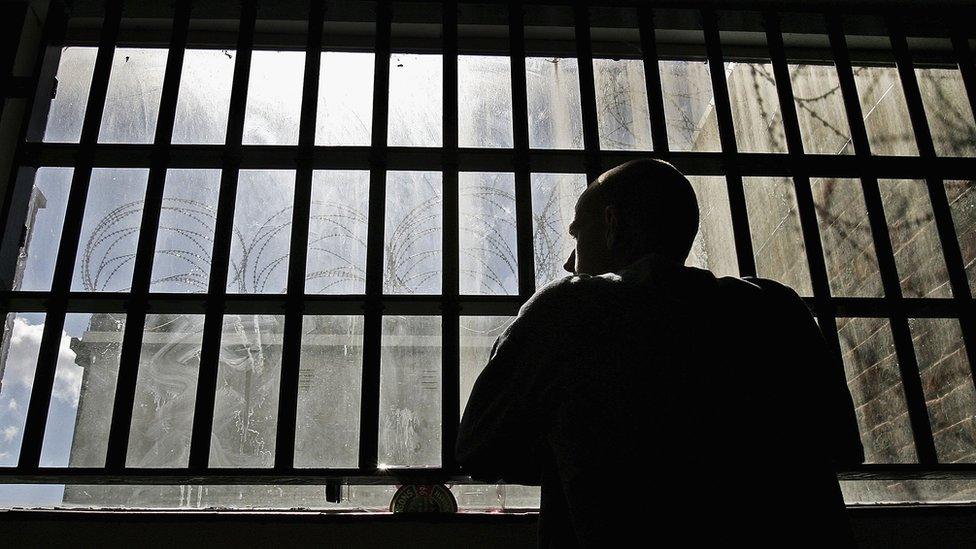'Secure schools' pilot scheme for young offenders
- Published
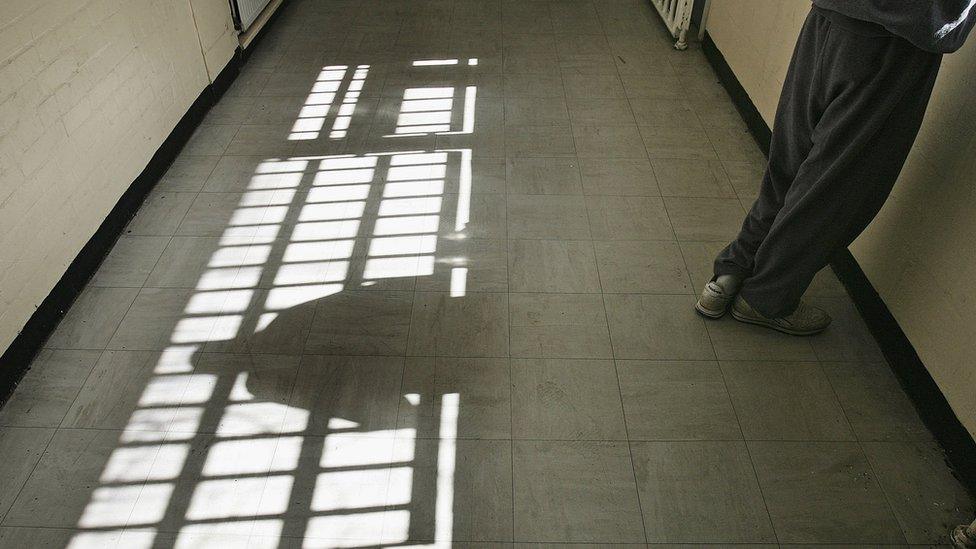
The £15 million scheme is meant to cut violence and improve education in the youth justice system
Two "secure schools" are to be opened for teenage offenders in England and Wales in a bid to improve education within the youth justice system.
Justice Secretary Liz Truss will announce the scheme on Sunday - a day before a review of the system is due to be published.
The two pilot schools will focus on maths and English, and will also provide apprenticeships.
The scheme will cost £15 million, including frontline staff.
As well as "driving up standards", the minister hopes the schools will reduce violence in the system and help young offenders into an apprenticeship that will continue after they leave custody.
Ms Truss said of the pilot scheme: "Prisons rightly punish people who break the law, but they should also be a place where offenders are reformed.
"While young people are in custody we need to make sure they get the right education and training so they can lead law-abiding lives - and in turn make our streets and communities safer too."
Noel Philips looks at what life is like for the young people who get locked up
Youth justice review
The review into the youth justice system was launched in September 2015. Charlie Taylor, a former head teacher and child behavioural expert, is due to publish his full report on Monday.
In an interim report launched in February this year, he called for a "fundamental change" to the system and raised the possibility of secure schools - which would be set up like free schools in England.
He also found that young people already in the system were only receiving 17 hours of education a week - compared to an expected level of 30 hours.
Mr Taylor welcomed Sunday's announcement from the justice secretary and its focus on education and training.
"Education needs to be central to our response to youth offending," he added. "It is the building block on which a life free from crime can be constructed.
"If children who offend are to become successful and law-abiding adults, the focus must be on improving their welfare, health and education - their life prospects - rather than simply imposing punishment".
Mentor plans
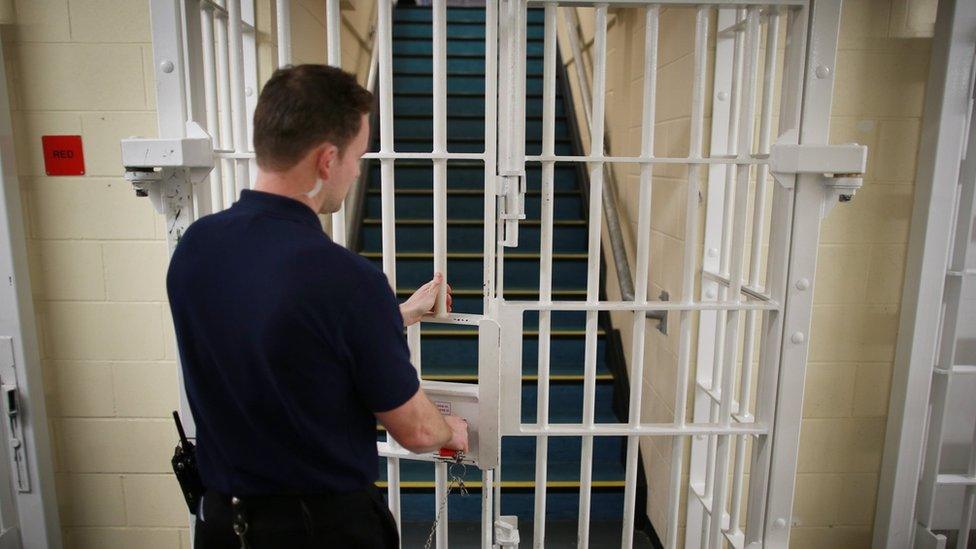
Reoffending rates of young offenders see two thirds of those released committing another crime within one year
The Ministry of Justice said the majority of Mr Taylor's recommendations would be taken forward and it wanted all young people "earning or learning" when they were released.
The schools will work closely with businesses to build relationships with the young people and plans are being developed to offer mentors to stop offenders "returning to a path of crime" when they are released.
Each school will also be measured to keep an eye on their progress and a head of operations post will be established to focus on "tackling violence, driving up performance levels and taking decisive action in the event of failures or falling standards".
There are no dates as of yet for the schools to open and the MoJ has not released numbers of how many young offenders they hope to house.
Youth custody down
There are currently five young offender institutions and three secure training centres for young people in England and Wales.
The under-18 youth custody population has dropped below 1,000 in recent years. However, reoffending rates have gone up, with two in three juvenile offenders committing a new offence within a year of release.
The MoJ said the two schools were "the first step" in a number of reforms for the youth justice system that would be set out in spring 2017.
Wider reforms for the justice system as a whole, including the treatment of female offenders and those under probation supervision, are due to be announced in the New Year.
- Published12 September 2016
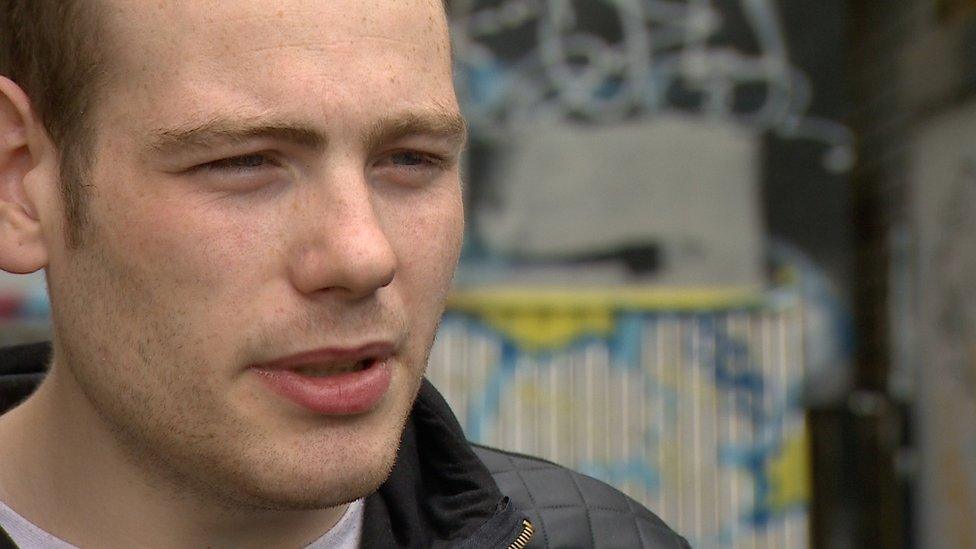
- Published26 October 2016
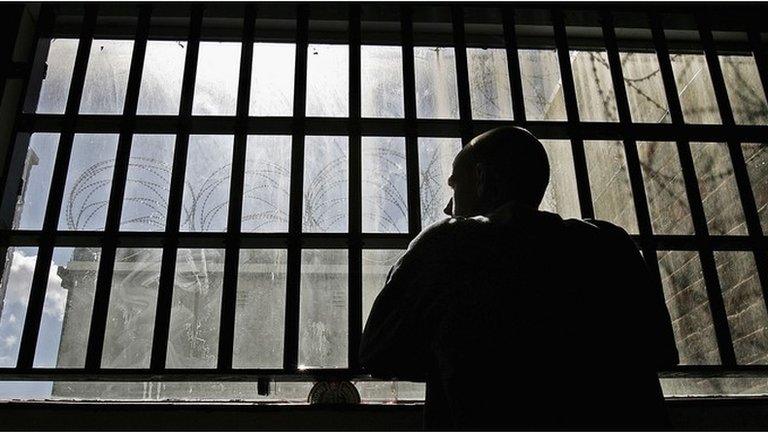
- Published13 January 2015
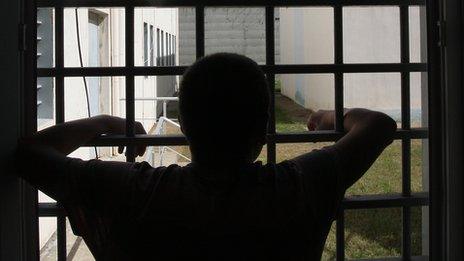
- Published7 September 2016
